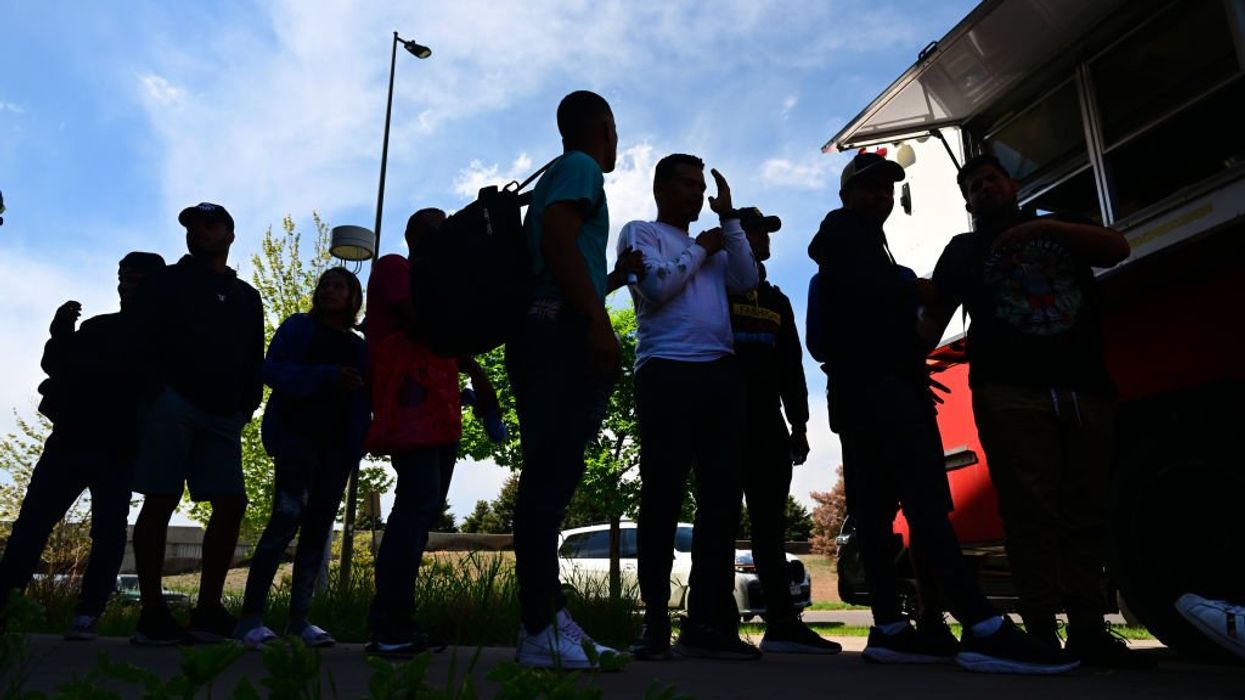Amtrak, the government-subsidized rail service that's perpetually in the red, appears likely to receive a $340 million subsidy in fiscal year 2015 that will cover its anticipated operating losses, after the Republican-led House rejected proposals to reduce that subsidy.
Rep. Paul Broun (R-Ga.) on Monday offered an amendment to the 2015 transportation spending bill that would have eliminated the $340 million subsidy. On the House floor, Broun argued that Amtrak runs a deficit each year, and that the House should no longer agree to subsidize the unprofitable enterprise.
 Amtrak is expected to lose $340 million in FY 2015, but the House declined to cut any federal subsidies to the unprofitable rail system. (AP Photo/Philadelphia Daily News, Yong Kim)
Amtrak is expected to lose $340 million in FY 2015, but the House declined to cut any federal subsidies to the unprofitable rail system. (AP Photo/Philadelphia Daily News, Yong Kim)
While Amtrak's routes in the northeast corridor are profitable, its long-distance routes are failing. Broun said Amtrak has seen the highest ridership in years on those long-distance routes, but still lost $587 million.
"In other words, for every passenger who traveled [on] one of Amtrak's long-distance routes last year, Amtrak lost $122.29," he said.
Broun also noted that Amtrak's food and beverage service lost $73 million in fiscal year 2013, and $387 million over the last five years. He said a big reason for that is that the average salary for the 1,200 Amtrak employees in the food and beverage service is $106,000.
"Amtrak is losing money hand over fist," he said. "There is not an end in sight."
But his amendment to cut all government subsidies was opposed on the floor by another Republican, Rep. Tom Latham (R-Iowa). "The gentleman's amendment would shut down Amtrak," Latham said.
"I can see that Amtrak could be more efficient," he added. "However, it has made significant improvements in this area recently, and it's moving in the right direction."
The House rejected Broun's amendment in a voice vote, a sign that there was very little support for the proposal.
Immediately afterwards, Broun proposed a 10 percent reduction in government subsidies to Amtrak, to send a message that Amtrak needs to find a way toward profitability.
"I'm asking my colleges to tell Amtrak that we will not continue to reward bad behavior," he said of his proposal to cut the subsidies by $34 million.
But Latham again opposed that idea. "If in fact the amendment were put in place, there could very easily be interruptions of service in the northeast or throughout the system," Latham said.
The House later rejected Broun's proposal in a 154-248 vote. Republicans voted 149-71 in favor of the plan, but the 71 Republicans against it were enough to sink it in the House.
Broun also offered a proposal to block a $1 million increase to the budget of Amtrak's inspector general, to keep funding in 2015 the same as it was in 2014. The House will vote on that proposal Tuesday afternoon.
The founder of the National Association of Railroad Passengers, who is seen as the person who inspired Amtrak, called the rail system a "massive failure" because it serves "political purposes as opposed to being responsive to the marketplace."
Broun is one in a small group of Republicans who tries each year to keep federal agencies level-funded from year to year. While overall discretionary spending has fallen, some House spending bills include small increases in various offices within each department, and Broun has tried to ensure these increases are reduced.
The transportation spending bill also includes funding for the Department of Housing and Urban Development. On Monday, Broun proposed an amendment to cut HUD's rental housing assistance program by $7 million, to keep it level-funded.
He also proposed a $200 million cut to HUD's community development block grants, to reduce that program to a level requested by the Obama administration. That proposal was rejected in a voice vote in the House, and on Tuesday, the House will vote on Broun's proposal to cut that program by just $20 million.

 Amtrak is expected to lose $340 million in FY 2015, but the House declined to cut any federal subsidies to the unprofitable rail system. (AP Photo/Philadelphia Daily News, Yong Kim)
Amtrak is expected to lose $340 million in FY 2015, but the House declined to cut any federal subsidies to the unprofitable rail system. (AP Photo/Philadelphia Daily News, Yong Kim)

